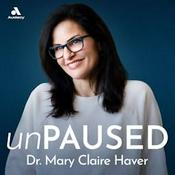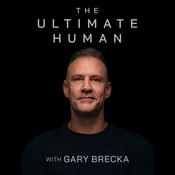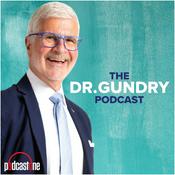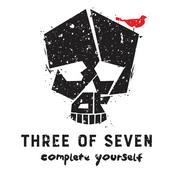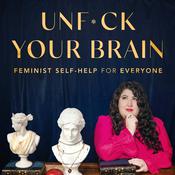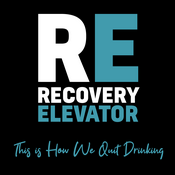Available Episodes
5 of 33
- The Blame Game: Finger Pointing in Charting and LitigationREMEMBER: Use code LEAP100 until December 1st, 2025, to get 100$ off of the LEAP for Clinicians course! Eligible for 16 Category 1 CME/CNE Credits. Learn the essential mindset and skillset you need as a clinician in litigation, all in one place. This month: finger pointing among health care professionals after an adverse event, or during litigation. We've all seen it: the tertiary care center dumping on the community hospital in their notes. The specialist criticizes the primary care doctor or the ER's management. The doctor blames the nurse. The nurse charts defensively, ending with "MD Aware." The attending blames the resident. The resident blames the attending! All in a chart war, preserved for perpetuity. Or even more sinister: a surgeon, after an adverse surgical event, tells the family the awful news -- and then tries to implicate someone else: the anesthesiologist, the CRNA, the radiologist who read the study... You know we could go on. We've all seen it. And then, once litigation starts -- now we're co-defendants. How does this 'blame game' play for a jury? Is the chart the place for these disagreements? (Spoiler alert: NO.) Can finger pointing in charting actually backfire and get you pulled INTO a case? (Spoiler alert: YES.) Our guest today is Heather Hansen, trial consultant and communications expert. For over 20 years, she defended providers and hospitals in medical malpractice cases. She created a curriculum for medical residents, teaching them communication and advocacy tools. She has helped leaders from Harvard Business School, Google, LinkedIn, LVMH, the American Medical Association, and Hospital Corporations of America advocate for change, resources, opportunities, and attention. As a trial attorney, she taught thousands of witnesses how to be credible and charismatic in court. She combines her experience with her psychology degree, conflict-resolution training, and time as a TV anchor to develop her trademarked systems and help her clients achieve their goals. Heather has been featured on The Today Show, Dr Oz, CNN, Fox News Channel, MSNBC, CBS, and Fox Business. She’s the best-selling author of The Elegant Warrior: How to Win Life’s Trials Without Losing Yourself. She’s the host of The Elegant Warrior podcast, which is consistently in the top 100 business podcasts on Apple. Learn more about host Dr. Gita Pensa.--------44:24
- Communication After CatastropheWelcome to Season 3 of Doctors and Litigation: The L Word! We start off with an update on the LEAP Course (Litigation Education and Performance) -- sign up from now through December 1, 2025 with coupon code LEAP100 and get $100 off. Now with up to 16 hours of Category 1 AMA CME Credits! https://www.doctorsandlitigation.com/LEAP/signup Our first conversation in Season 3 is with Dr. Anthony Orsini of The Orsini Way. Communication with patients or families after unexpected medical events is crucial, but most of us have no formal training in how to do it well. Compassionate and skilled conversations can pave the way for understanding and closure for families. However, when handled poorly or defensively, these conversations can create resentment, distrust, and anger, which can also make litigation more likely. What do patients and families want from us in these moments? What do we do with our body language? What happens if we cry? Can we show compassion by touch, on the hand or the shoulder? Why is this so difficult? Have we lost our humanity in the name of professionalism? Dr. Orsini has spent the last 25 years developing proven communication techniques that help doctors build rapport and quickly form trusting relationships with their patients. Come along as we discuss evidence based strategies to handling these conversations better.--------40:34
- Conversation With a Plaintiff's Attorney: Finding Common GroundIn this episode (the last of Season Two), Dr. Pensa sits down to speak with a plaintiff's attorney. However, her guest, Chad Englehardt, is not your average plaintiff's attorney. Chad is a highly lauded attorney, law professor, and advocate of Rick Boothman's Michigan Model (for more on that, listen to Episode 13 of Season Two.) We talk extensively about CRP (Communication - Resolution) programs, patient safety, and the dysfunction of our current legal system, which re-traumatizes patients and clinicians alike. If the first rule of medicine is 'First, do no harm,' then he feels the second rule in medicine, and the first in law, should be: "Do no further harm." We also talk a bit about third party investors and litigation funding (which we have not yet covered in the podcast, but is of great importance...we'll revisit it!) During the course of our conversation, Mr. Englehardt mentions two books: "Win - Win" by Rebecca Sposita, Esq "Gain Without Pain" by Greg Hammer, MD You can reach Chad via email at [email protected]. We'll be back in a few months with the start of Season Three!--------1:02:12
- DOJ vs. Doctor: One Physician's VictoryFollowing up after episode 15, "What to Know When the Government Comes Knocking," Dr. Pensa interviews a physician who went up against the US Department of Justice -- and won. Dr. Muhamad Aly Rifai is a practicing psychiatrist, boarded in psychiatry and internal medicine, who was indicted on charges of healthcare fraud by the US government in 2022, following seven years of investigation. Dr. Rifai was confident he was innocent, and confident in his billing practices -- and despite intimidation by the government, threats of imprisonment for up to 40 years, and very long odds, he refused to plead guilty to a lesser charge or settle. He won against the US Government after a 6-day trial, and is here to share what he learned in his ordeal. This Department of Justice press release describes the accusations against Dr. Rifai. (I feel they should update the headline!) After demonstrating that the case was baseless and should never have been brought to trial in the first place, along with his resounding victory in court, Dr. Rifai filed a motion for sanctions and to recoup his substantial legal fees. In the wake of that motion, one prosecuting attorney was fired, and two others have 'retired.' The motion, as of May 2025, is still in limbo. Dr. Rifai shares his story in an effort to educate all of us, and to empower physicians going through similar circumstances.--------27:39
- What You Should Know When The Government Comes KnockingThe Department of Justice is waging a war on healthcare fraud, and sometimes even well-meaning doctors can get swept up in it. Today's interview with healthcare law attorney Anthony Box will shed some light on this high stakes topic. Tony Box has extensive experience not only in defending doctors against government allegations -- but he also previously investigated and prosecuted these cases as a federal prosecutor and FBI agent. He knows both sides of this coin very well. Host Dr. Gita Pensa and Attorney Box break down the basics of what every doctor needs to know about governmental investigations and litigation.--------45:25
More Health & Wellness podcasts
Trending Health & Wellness podcasts
About Doctors and Litigation: The L Word
The majority of physicians will be sued during their career, yet the topic is largely taboo. This podcast for physicians discusses malpractice litigation and litigation stress, with the voices of doctors who have been through it. Music by @BenJamin Banger.
Learn more about creator Gita Pensa M.D. at doctorsandlitigation.com
Also available on Apple Podcasts and Spotify
Podcast websiteListen to Doctors and Litigation: The L Word, Passion Struck with John R. Miles and many other podcasts from around the world with the radio.net app
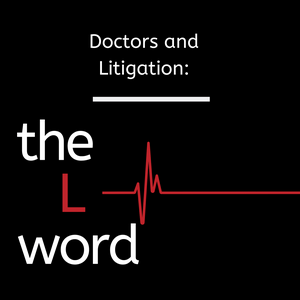
Get the free radio.net app
- Stations and podcasts to bookmark
- Stream via Wi-Fi or Bluetooth
- Supports Carplay & Android Auto
- Many other app features
Get the free radio.net app
- Stations and podcasts to bookmark
- Stream via Wi-Fi or Bluetooth
- Supports Carplay & Android Auto
- Many other app features


Doctors and Litigation: The L Word
Scan code,
download the app,
start listening.
download the app,
start listening.

